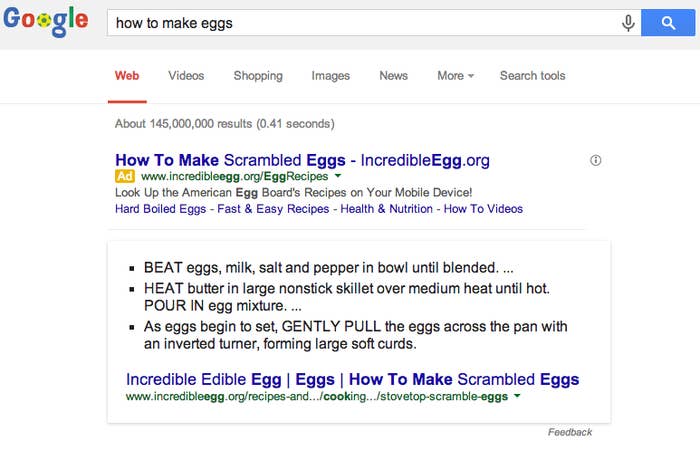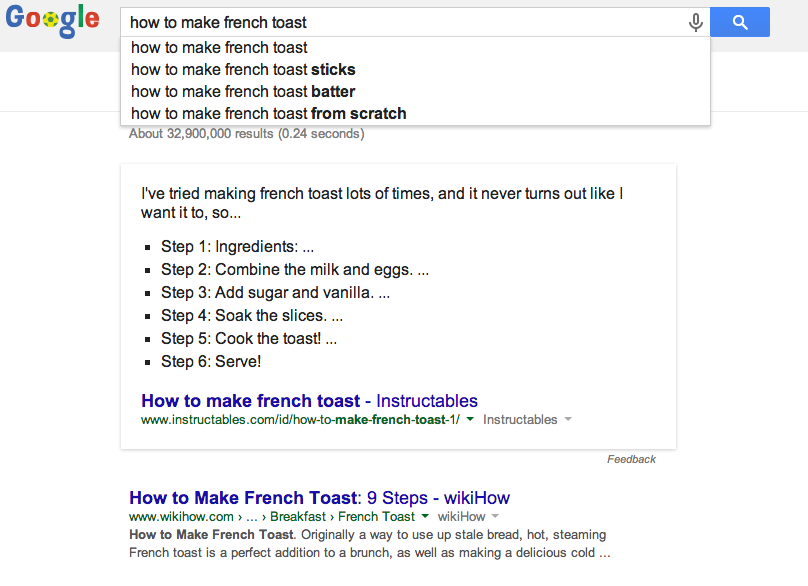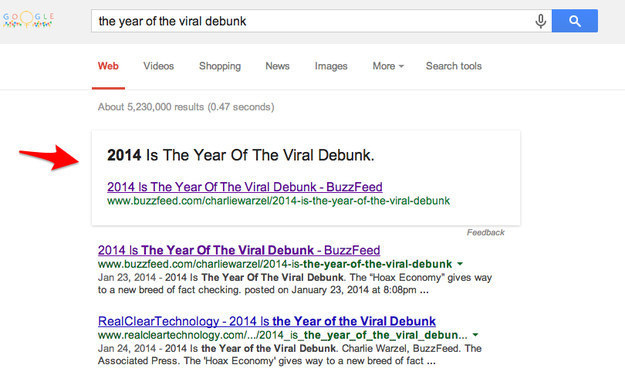As Barry Schwartz pointed out today over at Search Engine Land, Google's now quite detailed knowledge graph has started to return step by step instructions on searches, similar to those you might find on a how-to site like eHow or Ask.com. Here's a quick example of what we found:

In some cases, Google's answer box only displays a few of the steps, prompting the user to click through to the site, but for some, like the recipe for French toast, all the steps are conveniently laid out, making it easy for the user to stay on Google's page:

While Google hasn't responded to comment regarding the change, the search giant has had a fraught relationship with how-to sites like eHow. Back in 2011, eHow, which rose to prominence gaming search engine optimization techniques, was caught flat-footed by a Google algorithm change intended to weed out content farms. Its search referral traffic dropped 20 percent over night.
These tensions aren't exactly new. For some time now, publishers have expressed anxiety over Google's knowledge graph and the answer box, which seems to be getting better and better at scraping quick bits of information from sites and keeping users from clicking through to individual pages. Back in Feburary, this snarky tweet from digital marketer Dan Barker to Google's webspam head Matt Cutts recieved over 33,000 retweets:
.@mattcutts I think I have spotted one, Matt. Note the similarities in the content text:
It's possible this is just a test for Google, which has been playing around with its answer boxes for a while now. Earlier this year, when trying to find an old story of my own, I noticed one of my posts had made it into Google's answer box as an official answer.

When I asked, a Google spokesperson told me, "this is actually a new-ish feature we're testing that tries to identify the webpage most likely to provide a good answer to a given question. On this one, it seems your article is it."
And while my personal encounter as an official Google answer was light-hearted (Google took me out of official answer box status shortly after), it's easy to see how this Google-style fact aggregation could hurt publishers, especially on mobile, where attention spans are shorter and browsing and searching behaviors tend to be shallower. More than anything else though, it's another reminder for publishers — even those that play by the rules — that fortunes can change in a heartbeat and sometimes unintentionally and without good reason.
